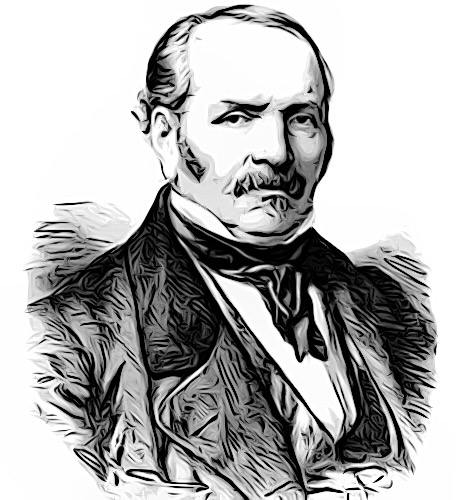8 Curiosities about Spiritism.
Below we have prepared 8 curiosities to explain, step by step, a little bit more about what Spiritism is.
1- Where did Spiritism begin?

Allan Kardec, the codifier of Spiritism.
Spiritism emerged in France in the 1850s and was codified by the educator Hippolyte Léon Denizard Rivail, who used the pseudonym Allan Kardec to disseminate the Spiritist Doctrine. Currently, Spiritism is present in dozens of countries, but in Brazil has its greatest strength, with millions of followers and sympathizers.
2- Who was H.L.D. Rivail?
Disciple of the pioneering educational reformer Johann Pestalozzi, Rivail was born in Lyon in 1804. He was principal of primary schools, teacher, fluent in several languages, author of educational didactic books and member of several scientific societies in France. He actively participated in political discussions about French educational reform. Rivail passed away at the age of 64 (1869) in Paris.
3- Why did Rivail start his studies about Spiritism?
In the 19th century, a phenomenon impressed Europe and other parts of the world: the table-turning. In elegant salons, in cafes, after soirées, the tables became objects of curiosity and extensive newspaper articles, as they moved, rose up in the air and answered questions by making sounds. The phenomenon caught the attention of many people, among them Rivail. However, professor Rivail did not immediately accept the phenomena of table-turning, but he studied them closely with a rigorous scientific method. Finally, he noted that there were indeed intelligent forces from the invisible world that manifested themselves through these phenomena.
4- What did Rivail do after realizing this spiritual intelligence?
With the improvement of the means of communication, Professor Rivail asked hundreds of questions to the Spirits, using mediums from different cities and countries. He analyzed the answers, compared and coded them, submitting everything to reason, not accepting and not disclosing anything that did not pass through this filter. Thus, was born The Spirits’ Book on April 18, 1857, in which Professor Rival codified it under the pseudonym Allan Kardec.
Do you want to know more about how the Spirits communicated with Kardec? Check it out in this post here!
5- What is the content of The Spirits’ Book?
The Spirits’ Book is a book of questions and answers, in which Allan Kardec, with his brilliant intelligence and ability to synthesize, asked hundreds of questions to superior Spirits. Among the subjects dealt with, we can highlight: the immortality of the soul, plurality of existences, the nature of spirits and their relationships with mankind, moral and progress laws, the plurality of inhabited worlds, the future of life and humanity. The last version of The Spirits’ Book has 1019 questions.
6- What does Spiritism intend to explain?
Spiritism intends to explain what we are, where we came from and where we are going to. From a Christian perspective, it explains the immortality of the soul, the return of the Spirit to the spirit world after the death of the body it inhabited, the lessons learned during this process, as well as the return of the Spirit to the material world through reincarnation, respecting the laws that govern the universe.
7- What were the books Allan Kardec wrote?
The doctrine is based on five “basic books”, called the Spiritist Codification, published by Kardec between 1857 and 1868. The codification is composed of: The Spirits’ Book, The Mediums’ Book, The Gospel According to Spiritism, Heaven and Hell and Genesis. In addition, there are the so-called “complementary” books, such as: What is Spiritism?, Posthumous Work, and several editions of the Spiritist Magazine.
Download Allan Kardec’s books on the website of the Brazilian Spiritist Federation (FEB) through this link.
8- Why is it said that Allan Kardec was the codifier of Spiritism and not the founder?
Allan Kardec attributed all the authorship of his work to the Spirits, who through several dedicated mediums answered Kardec’s questions, transmitting the concepts of Spiritism to humanity. Thus, fulfilling the promise of Jesus (Gospel of John), when he promised to send us the Comforter (Spiritism). Allan Kardec considered himself an “intermediary”, who was chosen by superior Spirits to assist in the realization of this work. Therefore, it is said that Allan Kardec codified the doctrine, but was not its founder.
Check out this post here to find out why we decided to start this Blog.
Sources:
Brazilian Spiritist Federation (FEB)
International Spiritist Council (CEI)
The Spirits’ Book, Allan Kardec.
